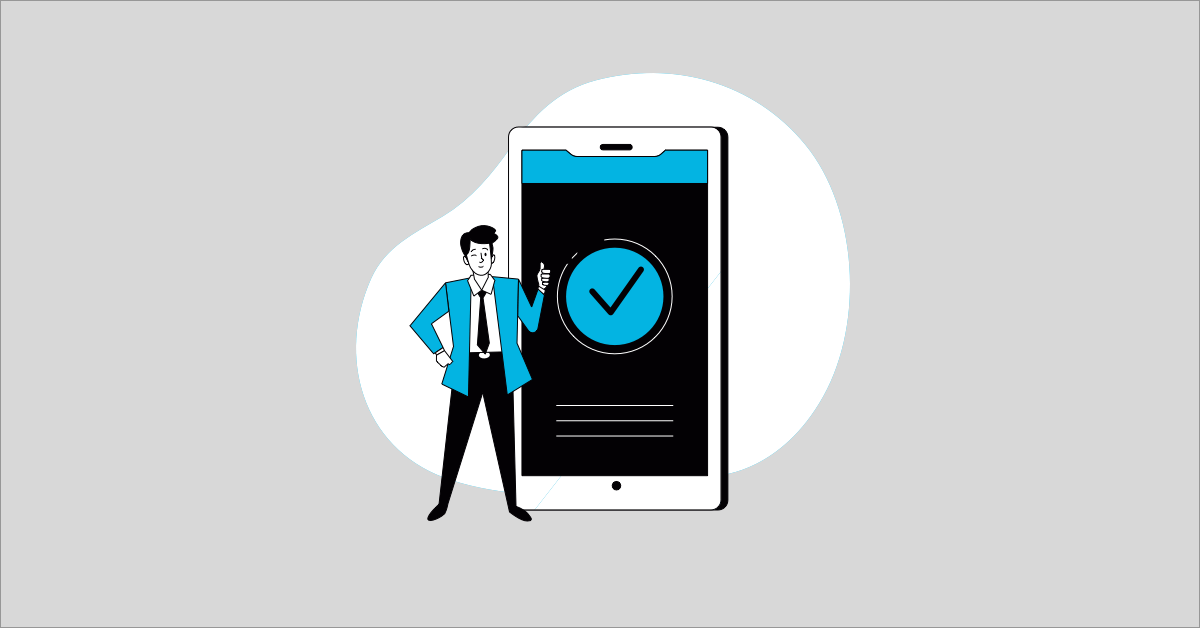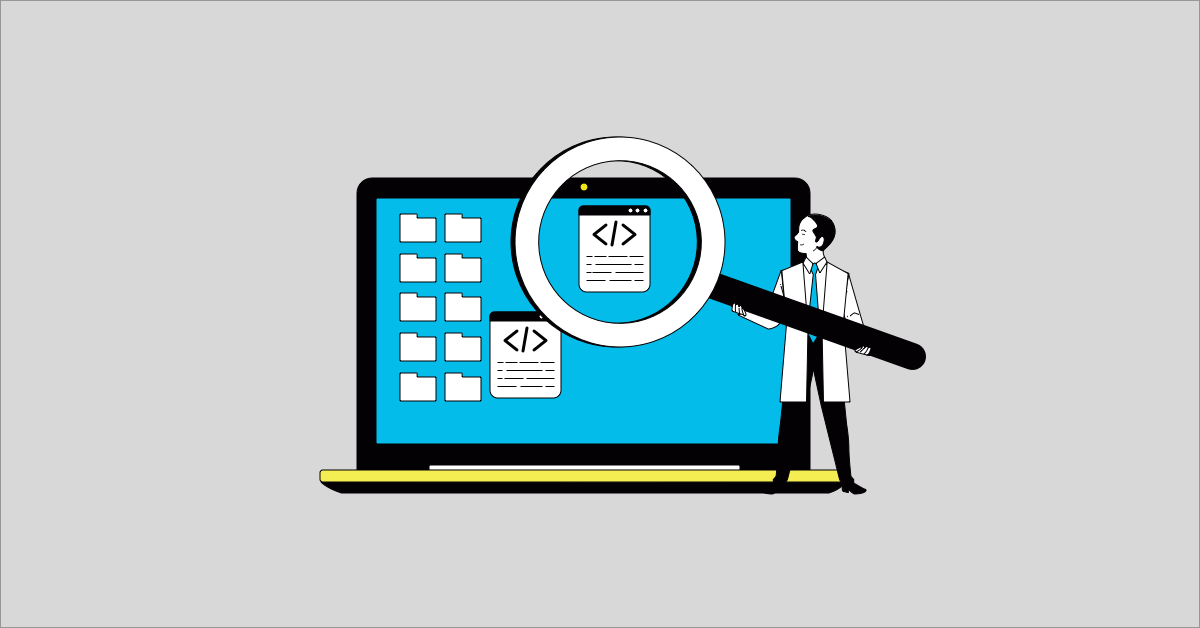Ever wondered what it really takes to become a QA tester? It's more than just finding bugs. It's about ensuring a seamless user experience, from the first click to the final download. This role blends technical know-how with sharp problem-solving skills, making it a dynamic and in-demand career path. In this post, we'll break down everything you need to know, from the core responsibilities and essential skills to the educational pathways and emerging trends shaping the future of QA. Whether you're just starting out or looking to level up, understanding the qa tester job requirements is key to success in this exciting field. We'll also explore how MuukTest's AI-powered solutions are revolutionizing software testing, making the process faster, more efficient, and incredibly comprehensive.
Key Takeaways
- QA is essential for software quality: Testers are vital throughout the development process, ensuring smooth user experiences and efficient bug detection. A blend of technical and soft skills, from using testing tools to communicating effectively, drives success in QA.
- You don't need a specific degree to start a QA career: Practical experience, focused training, and certifications are valuable alternatives to traditional degrees. Continuous learning and adapting to new technologies like AI and cloud-based testing are crucial for career growth.
- The QA field is booming: High demand, competitive salaries, and opportunities for specialization make QA testing a promising career path. Preparing for interviews with practical test scenarios and showcasing a mix of technical and soft skills will help you secure a QA role.
What Do QA Testers Do?
QA testers play a crucial role in software development, acting as the gatekeepers of quality and user experience. They're responsible for identifying defects and ensuring the final product meets requirements and standards. This involves a range of tasks and responsibilities throughout the software development lifecycle.
Core Responsibilities
Think of QA testers as software detectives. Their primary job is to find and report bugs before they reach end-users. This involves meticulous planning and execution of various tests, both manual and automated, to validate the software's functionality, performance, and usability. QA testers document their findings, providing detailed reports of any issues discovered. They then collaborate closely with developers to explain these issues and ensure they get fixed. Beyond testing, QA professionals also research new testing technologies and methodologies to stay ahead of the curve and improve testing processes. This continuous learning and adaptation are essential for keeping pace with the ever-evolving software landscape. They also contribute to defining quality standards and ensuring the overall user experience is smooth and positive.
Role in the Software Development Lifecycle
QA isn't a one-time check at the end of development; it's an integrated process throughout the entire software development lifecycle. Early bug detection is key, as fixing issues in later stages becomes significantly more expensive and time-consuming. QA testers contribute to increased efficiency and cost savings by preventing these late-stage problems. They ensure new features don't introduce regressions and the software adheres to all relevant safety standards and regulations. While developers focus on building the software, QA ensures it works as intended and meets both technical and business requirements. This often involves close collaboration between QA and development teams, working together to address issues and improve code quality throughout the development process. This collaborative approach, with QA engaging early in the cycle, allows for incremental testing and a more proactive approach to quality assurance. This helps prevent issues from snowballing and ensures a higher quality product is delivered.
Essential Skills for QA Testers
Want to become a QA tester or level up in your current role? This section breaks down the essential skills you need to succeed, covering both technical know-how and the soft skills that make a QA pro truly shine.
Technical Skills
Having the right technical skills is the foundation of a successful QA career. You'll need a good mix of analytical abilities, testing knowledge, and familiarity with relevant tools.
Analytical and problem-solving skills are key. QA involves digging into systems, identifying issues, and figuring out solutions. Think of yourself as a detective for software bugs. You'll also want a solid understanding of different software testing models, like Waterfall, Iterative, Agile, and Extreme Programming. Knowing how these work helps you fit into different development environments.
Next are the tools of the trade. Familiarity with SQL is a big plus for testing databases. You'll also likely work with test management software like qTest or Zephyr, so getting comfortable with these platforms is important. Finally, some programming knowledge is often required. While the specific languages depend on the job, knowing at least one—such as Java, JavaScript, Python, C#, or PowerShell—is a huge advantage. This Reddit thread offers more insights on programming for QA testers.
Soft Skills
Technical skills are essential, but soft skills elevate a QA tester. These skills help you communicate effectively, collaborate with your team, and thrive in a fast-paced environment.
Communication is paramount. You'll need to clearly explain complex technical issues to both technical and non-technical audiences, writing clear bug reports, giving concise updates in meetings, and collaborating effectively with developers.
Another crucial soft skill is attention to detail. Think of yourself as the last line of defense against software glitches. You need to be meticulous in your testing, able to spot even the tiniest inconsistencies.
Finally, strong problem-solving skills are highly valued. Employers look for candidates who can think critically, analyze situations, and find effective solutions.
Educational Requirements for QA Testers
So, you’re interested in becoming a QA tester? Great! This section covers the educational paths you’ll want to consider. The good news is there are multiple ways to start this career.
Degree Programs
Many QA testers have a bachelor's degree in a related field, such as computer science, software engineering, or even business. These programs offer a solid foundation in software development principles, testing methodologies, and problem-solving. However, don’t worry if you don’t have a four-year degree—it’s not always required. Practical experience and demonstrable skills often outweigh formal education. A strong portfolio showcasing your testing abilities can be just as valuable, as highlighted in this Reddit discussion.
Alternative Paths
If a traditional degree isn't your style, there are other excellent options. Coding bootcamps focused on software testing can give you targeted training and practical experience more quickly. While some companies prefer candidates with at least an associate degree, like an Associate of Applied Science in quality technology, it's not always mandatory, as this Indeed article explains. A combination of practical skills, relevant experience, and a passion for quality assurance can launch a successful QA career, even without a traditional computer science degree. Job descriptions often list a range of acceptable qualifications, highlighting the diverse backgrounds that can thrive in this field.
Essential Tools for QA Testers
As a QA tester, the tools you use directly impact your effectiveness. Having the right software can streamline your workflow, improve accuracy, and ultimately contribute to shipping high-quality software. Let's explore some essential tools every QA tester should know.
Testing Software
Testing software forms the foundation of a QA tester's toolkit. These tools allow you to simulate user interactions, automate tests, and perform in-depth analyses of software behavior. A popular choice for web-based applications is Selenium WebDriver, which lets you automate browser actions, making it ideal for regression testing. Other tools specialize in mobile app testing, performance testing, or security testing. Choosing the right testing software depends on the specific needs of your project.
Bug Tracking Systems
Once you've identified bugs, you need a system for managing them. Bug tracking systems are essential for documenting, prioritizing, and tracking the resolution of defects. These tools help ensure that no bug slips through the cracks and provide a centralized platform for communication between testers, developers, and project managers. Consider factors like team size, project complexity, and integration with other tools when selecting a bug tracking system. Popular tools include Jira and Trello.
Automation Tools
Test automation is key to efficient and effective QA. Automation tools help streamline repetitive tasks, freeing up testers to focus on more complex scenarios and exploratory testing. From creating automated test scripts to running tests across multiple environments, these tools significantly speed up the testing process. Cloud-based testing solutions offer additional flexibility, allowing you to test on various configurations without managing physical infrastructure. For insights into the benefits and challenges of test automation.
QA Testing Methodologies
As a QA tester, you'll work with various testing methodologies, each with its strengths. Understanding these different approaches is key to a successful career in quality assurance.
Manual Testing
Think of manual testing as the foundation of quality assurance. Like detectives, QA testers meticulously examine software and websites, searching for bugs and usability issues before they impact users. This involves running tests by hand, exploring different scenarios, and documenting findings. Manual testing remains relevant because it allows testers to evaluate the user experience from a human perspective, catching issues that automated tests might miss. While automation is becoming more prevalent, manual testing provides valuable experience, especially when starting in the field. It can also be a great stepping stone to more advanced roles, like a deep dive into the technical aspects of testing.
Automated Testing
Automated testing uses software and scripts to execute tests, often simulating user interactions on web platforms. This approach excels at repetitive tasks like regression testing, where you verify that new code changes haven't introduced bugs or broken existing functionality. Adopting test automation tools and frameworks streamlines these time-consuming tests, freeing up QA teams to focus on more complex scenarios and exploratory testing. Services like MuukTest leverage AI-powered test automation platforms to achieve comprehensive test coverage efficiently, combining the expertise of dedicated QAs with cutting-edge technology.
Certifications to Enhance Your QA Career
Want to stand out in the competitive field of QA? Getting certified is a smart move. It shows potential employers you have the skills and knowledge to succeed, and it can open doors to new opportunities. This section covers popular certifications and why they're worth considering.
Popular QA Certifications
The International Software Testing Qualifications Board (ISTQB) offers a widely recognized certification program. Their certifications cover different levels of expertise, from foundational knowledge to advanced test management. Earning an ISTQB certification can significantly boost your resume and signal your commitment to quality assurance. For those in the US, the American Software Testing Qualifications Board (ASTQB) offers similar certifications tailored to the American market. Explore these options to find the best fit for your career goals.
Benefits of Certification
While experience is valuable, certifications offer concrete proof of your abilities. They can give you an edge in the job market, especially when competing with other candidates. A certification can help you land your first QA role or advance to a more senior position. Plus, studying for a certification deepens your understanding of QA principles and best practices, making you a more effective tester. It's a win-win: you gain valuable knowledge and a credential that strengthens your professional profile.
QA Career Growth and Specializations
Entry-Level to Senior Positions
Getting started in QA doesn't always require a specific degree. While a bachelor's degree in a related field like computer science or business is common, it’s not the only path. Practical experience, certifications, and demonstrable skills often hold equal weight, especially for those transitioning from other tech roles. As you explore QA roles, remember that your existing skills might be more transferable than you think.
The career trajectory in QA is promising, with plenty of room for advancement. You might start as a junior QA tester, then progress to a QA analyst, and eventually land a senior QA engineer or management role. The projected job growth for QA testers is encouraging, making it an attractive field for those seeking long-term career prospects. Salaries also increase with experience and specialization, offering financial incentives alongside professional growth.
Strong analytical and problem-solving skills are essential for success in QA. You'll need to identify and understand software issues, then communicate those issues clearly and effectively to developers. Familiarity with different software testing models, such as Agile and Waterfall, is also crucial for adapting to various project workflows. Honing these skills will position you well for advancement in your QA career.
Niche Areas in QA Testing
As you gain experience, you can specialize in areas like automation testing, performance testing, or security testing. Automation testing involves using tools like Selenium WebDriver to automate repetitive testing tasks, increasing efficiency and test coverage. Performance testing focuses on evaluating the speed, stability, and responsiveness of software under different loads. Security testing, on the other hand, aims to identify vulnerabilities and protect sensitive data. Penetration testing is a type of security testing where you simulate cyberattacks to identify vulnerabilities.
Cloud-based testing is another growing area of specialization. With cloud platforms, QA teams can test software on various configurations and environments without needing extensive physical infrastructure. This approach offers flexibility and scalability, making it increasingly popular in modern software development. AI-powered testing tools are also gaining traction, using artificial intelligence to detect defects and predict potential issues, further enhancing the efficiency and effectiveness of QA processes. Exploring these niche areas can open doors to exciting and rewarding career opportunities within the QA field.
QA Job Market Outlook and Salaries
So, you’re interested in becoming a QA tester? Smart move. This field is booming, and there’s plenty of room for advancement. Let’s take a look at the job market and what you can expect to earn.
Industry Demand
The demand for skilled QA professionals is high and continues to grow. The US Bureau of Labor Statistics projects 17% growth for QA and software testing roles between 2023 and 2033. That translates to roughly 327,900 new jobs over the next ten years. This significant growth means abundant opportunities for both newcomers and seasoned testers. As software becomes increasingly complex and essential to businesses across all industries, the need for thorough testing and quality assurance is more critical than ever.
Compensation Ranges
Let’s talk money. The average salary for a QA tester in the US is around $82,000 per year. Compensation varies based on several factors, including your location, experience, and specific role. QA automation testers, QA engineers, and test managers often earn more. Specialized roles, like security or performance testing, can command even higher salaries. In Canada, the median hourly wage for a QA tester is $23.52 CAD. Similar to the US, related roles like QA engineer or software testing engineer typically earn more, with hourly rates ranging from about $40 to $60 CAD. Keep in mind that these figures are averages, and your actual salary will depend on your specific circumstances.
Preparing for a QA Interview
Landing a QA testing job requires more than just technical skills; you also need to present yourself effectively during the interview. This section covers common interview questions and practical test scenarios to help you ace your next QA interview.
Common Interview Questions
Interviewers want to gauge your problem-solving abilities, communication skills, and understanding of software testing principles. Be ready to discuss your experience with various software testing models, like Waterfall and Agile. These methodologies are fundamental to the QA process, and understanding them demonstrates a solid foundation. As a QA tester, you'll need a blend of technical knowledge and strong communication skills. Beyond technical expertise, interviewers look for candidates with sharp analytical and problem-solving skills. Soft skills are essential for effective collaboration and communication within a team. Be prepared to discuss your critical thinking abilities and your approach to problem-solving. Understanding how the software works is crucial for creating effective test cases. Be ready to discuss your approach to understanding software functionality and how you apply that knowledge to testing.
Practical Test Scenarios
Many interviews include practical test scenarios to evaluate your skills in real-world situations. You might encounter scenarios involving the transition to test automation. Be prepared to discuss how you would identify repetitive test cases and implement automation using tools like Selenium. Accessibility testing is another important area. You should be familiar with accessibility standards and how to integrate accessibility testing into the QA process. Interviewers often assess your familiarity with test automation tools and frameworks. Be ready to explain how you would use these tools to streamline testing tasks, freeing up time for more complex scenarios and exploratory testing. Practice explaining your thought process and approach to different testing scenarios. This will demonstrate your practical skills and adaptability to various testing situations.
Stay Current in QA: Adapt to New Technologies
This isn't a field where you learn once and coast. Tech, and testing, are always changing. To stay on top of your game, you need to embrace continuous learning and keep your eye on what's next. At MuukTest, we live this philosophy, ensuring our team and our AI-powered tools are always at the cutting edge of QA.
Continuous Learning Strategies
Think of continuous learning as your secret weapon in QA. It's how you stay relevant, competitive, and excited about your work. Practical strategies include diving into new tools and established best practices. Think test documentation templates and dedicated documentation tools, and get comfortable with version control systems. These resources streamline your workflow and make you a more effective tester. Another helpful resource is exploring insights and advice from experienced professionals on platforms like LinkedIn. You can find valuable discussions and articles on common QA testing challenges and solutions.
Early engagement is another game-changer. Push to involve the QA team earlier in the development lifecycle. This means collaborating on code quality from the start and performing incremental testing. This approach not only catches bugs sooner but also keeps you in the loop on the latest technologies and methodologies. You'll be learning and contributing from day one.
Emerging Trends in QA Testing
Beyond the day-to-day, it's crucial to track the bigger trends shaping QA. Artificial intelligence (AI) and machine learning (ML) are transforming the industry, enabling more efficient and sophisticated testing strategies. At MuukTest, we leverage the power of AI to deliver comprehensive test coverage within 90 days, a testament to the impact of these technologies.
Cloud-based testing is another major shift. These solutions offer incredible flexibility, allowing teams to test across various configurations and environments without needing physical infrastructure. This adaptability is key in today's fast-paced development world. Articles like "Ten Emerging Trends That Are Set to Shape the Future of QA" offer valuable perspectives on the evolving landscape of software testing. You can find discussions on emerging QA trends and their potential impact on the industry.
Finally, the growing role of AI in quality engineering is reshaping how we approach testing itself. This reinforces the need for continuous learning and adaptation. Staying current isn't just about keeping up; it's about leading the way in QA. Ready to take your testing to the next level? Explore MuukTest's QuickStart guide to get started. You can also learn more about our customers and how they benefit from our services, or explore our pricing plans to find the right fit for your needs.
Frequently Asked Questions
Is a computer science degree required to become a QA tester? Not necessarily. While a degree in computer science or a related field can be helpful, it's not always a requirement. Practical experience, demonstrable skills, and certifications can often be just as valuable, especially when combined with a strong portfolio showcasing your testing abilities. Many successful QA testers have backgrounds in other fields and transitioned into QA roles by focusing on skill development and practical experience.
What's the difference between manual and automated testing? Manual testing involves running tests by hand, exploring different scenarios, and documenting findings, much like a detective searching for clues. Automated testing, on the other hand, uses software and scripts to execute tests, often simulating user interactions. Automated testing is particularly effective for repetitive tasks like regression testing, while manual testing allows for a more nuanced evaluation of the user experience and can catch issues that automated tests might miss.
What are some essential tools for QA testers? Essential tools for QA testers include testing software like Selenium WebDriver for automating browser actions, bug tracking systems like Jira for managing and tracking defects, and automation tools for streamlining repetitive tasks. The specific tools you'll need will depend on the project and the type of testing you're performing, but familiarity with these types of tools is crucial for any QA professional.
What are some common interview questions for QA testing roles? Expect questions that explore your understanding of software testing principles, your experience with different testing methodologies (like Agile and Waterfall), and your problem-solving abilities. Interviewers also want to assess your communication skills and your ability to explain complex technical issues clearly and concisely. Be prepared to discuss your approach to testing, your experience with specific tools, and your ability to work effectively within a team.
How can I stay up-to-date with the latest trends in QA testing? Continuous learning is key. Stay current by exploring new tools and technologies, engaging with online communities and forums, and pursuing relevant certifications. Pay attention to emerging trends like AI-powered testing and cloud-based testing solutions. Actively seeking out opportunities to learn and grow will help you stay ahead of the curve and remain competitive in the ever-evolving field of QA.












